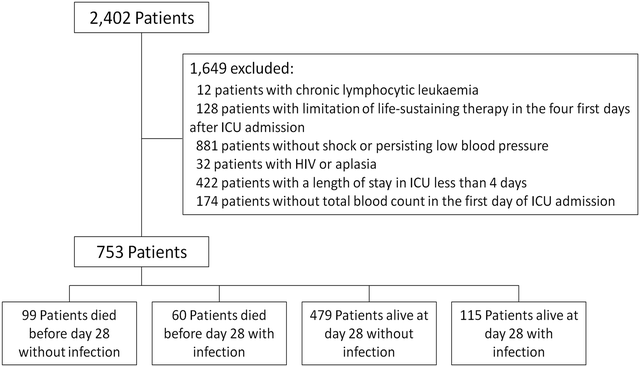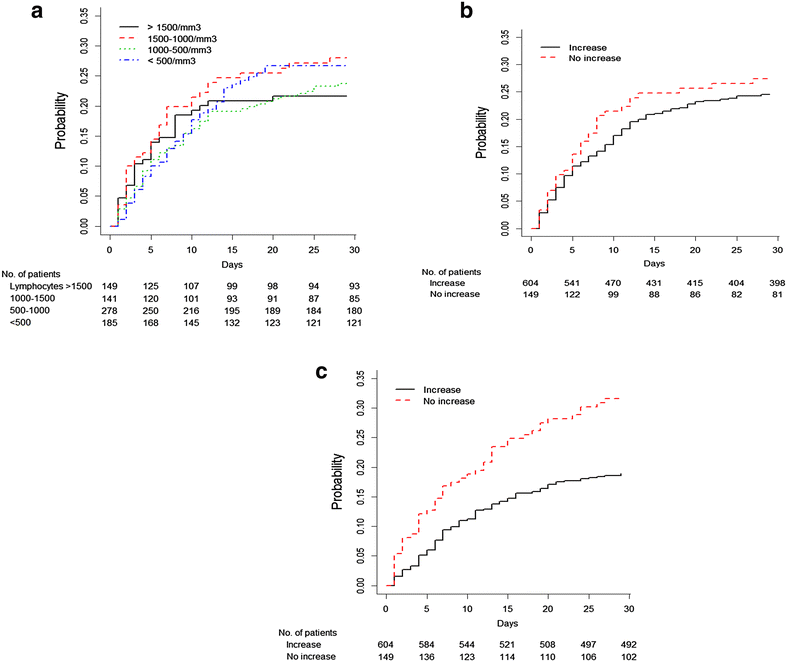Persistent lymphopenia is a risk factor for ICU-acquired infections and for death in ICU patients with sustained hypotension at admission
- PMID: 28303547
- PMCID: PMC5355405
- DOI: 10.1186/s13613-017-0242-0
Persistent lymphopenia is a risk factor for ICU-acquired infections and for death in ICU patients with sustained hypotension at admission
Abstract
Background: Severely ill patients might develop an alteration of their immune system called post-aggressive immunosuppression. We sought to assess the risk of ICU-acquired infection and of mortality according to the absolute lymphocyte count at ICU admission and its changes over 3 days.
Methods: Adults in ICU for at least 3 days with a shock or persistent low blood pressure were extracted from a French ICU database and included. We evaluated the impact of the absolute lymphocyte count at baseline and its change at day 3 on the incidence of ICU-acquired infection and on the 28-day mortality rate. We categorized lymphocytes in 4 groups: above 1.5 × 103 cells/µL; between 1 and 1.5 × 103 cells/µL; between 0.5 and 1 × 103 cells/µL; and below 0.5 × 103 cells/µL.
Results: A total of 753 patients were included. The median lymphocyte count was 0.8 × 103 cells/µL [0.51-1.29]. A total of 174 (23%) patients developed infections; the 28-day mortality rate was 21% (161/753). Lymphopenia at admission was associated with ICU-acquired infection (p < 0.001) but not with 28-day mortality. Independently of baseline lymphocyte count, the absence of lymphocyte count increase at day 3 was associated with ICU-acquired infection (sub-distribution hazard ratio sHR: 1.37 [1.12-1.67], p = 0.002) and with 28-day mortality (sHR: 1.67 [1.37-2.03], p < 0.0001).
Conclusion: Lymphopenia at ICU admission and its persistence at day 3 were associated with an increased risk of ICU-acquired infection, while only persisting lymphopenia predicted increased 28-day mortality. The lymphocyte count at ICU admission and at day 3 could be used as a simple and reproductive marker of post-aggressive immunosuppression.
Keywords: Absolute lymphocyte count; ICU; Immunosuppression; Infection; Nosocomial; Shock; Survival.
Figures


References
LinkOut - more resources
Full Text Sources
Other Literature Sources

